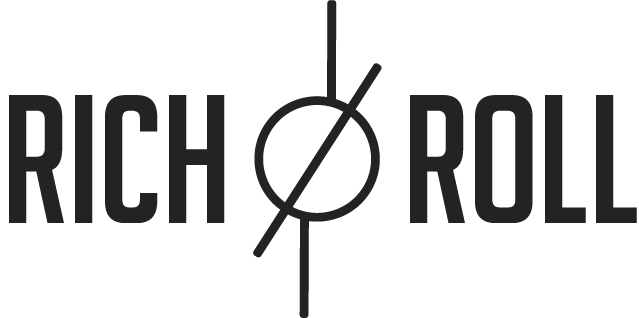Podcast: Play in new window | Download | Embed
“Most people assume that meditation is all about stopping thoughts, getting rid of emotions, somehow controlling the mind. But actually it’s … about stepping back, seeing the thought clearly, witnessing it coming and going.”
Andy Puddicombe
I was first introduced to meditation and mindfulness principles 17 years ago during my 100-day voluntary incarceration in what is more amiably referred to as rehab.
Initially, I balked at the concept. How can stillness possibly improve my life?
Intellectually, I attributed every decent personal achievement not to innate talent, let alone some intangible force of the Universe. Instead I credited my prodigious work ethic — a huge capacity to grind harder and longer than my peers. Get up early. Stay late. Put in the extra mile. Repeat. Never stop.
Do more.
At best, stillness meant stasis. Mostly I wrote it off as regressive — wasted time lost. The purview of flaky, new-age hippies who couldn’t begin to fathom my logic-based intellect, understand my terminally unique life problems, nor comprehend how I successfully navigated the world.
Always good for a solid re-sizing, my rehab counselor — let’s call him Hugh because that’s his name — reminded me of one simple, powerful fact:
My best thinking landed me in a mental institution.
That blast of truth and humility fell on my head like a ton of bricks. In recovery, they call it self-will run riot. And that was me, in a nutshell — a desperate hope to die alcoholic. A broken young man who had squandered promise and destroyed his life, literally tightrope walking the divide that separates life and death.
Hardly a vision for you, It was time to try something different.
Surrender.
At the time, I perceived this concept as synonymous with defeat. Anathema to my core idea of who I was. But Hugh was right. I was out of options, with only one saving grace — willingness. So I (quite reluctantly) released my resistance. I let go of logic. I opened myself to possibilities beyond the rational, to something perhaps entirely unknowable. And in so doing, my life didn’t just change, it transformed wholesale — dramatically and irrevocably improving every aspect of my mental, emotional, physical and spiritual well being.
I wish I could tell you that from that day forward I devoted myself to a daily meditation practice.
That didn’t happen.
Newly sober, life quickly got better. Priorities rearranged, and that willingness to surrender — the one character trait that had saved me — started to wane until the very thing that had been so indisputably beneficial to my overall sense of self had been relegated to back seat status — a convenient tool relied upon only when life got complicated, but hardly a consistent mainstay. Despite great appreciation for the benefits of meditation, consistency and momentum eluded me. For many years, I would practice only in spurts as a last ditch salve to alleviate some form of emotional pain.
Then about six months ago, I discovered Headspace— a mobile app and digital platform (boasting over 1 million users) pre-packaged with an endless rotation of very accessible, secular guided meditation programs all pleasantly voiced by the company’s founder and today’s guest, Andy Puddicombe.
Considered “the international poster boy for the modern mindfulness movement,” Andy is a meditation expert, accomplished presenter and author of two books — Get Some Headspace* and The Headspace Diet*, both of which have been translated into a zillion languages. An exceptional orator who has successfully popularized concepts traditionally erudite and ethereal, it’s fair to say that he is doing for meditation what Jamie Oliver did for food: democratizing it.
Andy has been featured widely in international press, appearing in Vogue, the New York Times, The Financial Times, Entrepreneur, Men’s Health and Esquire, to name but a few. He’s also no stranger to television and internet fame, having been featured on BBC, Dr Oz, Netflix and TED. In fact, Andy’s TED Talk is a super entertaining must view with almost 5 million views to date.
I can’t specify exactly why, but Headspace hit the spot for me. Maybe it’s the ease of use. Maybe it’s because it’s always at my fingertips. Maybe it’s Andy’s soothing, accessible delivery. Then again, maybe the old adage is true:
When the student is ready, the teacher will appear.
All I can say for certain is that Headspace has helped me re-engage my practice with new enthusiasm, resulting in increased consistency, momentum and of course results. The last six months of my life have been my best — and that is not a coincidence.
Therefore, on a personal level, it was a thrill to connect with the man himself — a thoughtful conversation that delves deep into the power of these practices as well as Andy’s quite fantastical personal story. A story that involves dropping out of university in his early twenties to study meditation in the Himalayas, followed by a ten year journey which took him around the world, culminating with ordination as a Tibetan Buddhist monk in Northern India. Prepared to live out the rest of his days in relative seclusion, one day Andy awoke with an epiphany: a yearning to return West and share his experience with the world.
Andy’s transition back to lay life in 2004 was no less extraordinary. Training briefly at Moscow State Circus, he returned to London where he completed a degree in Circus Arts with the Conservatoire of Dance and Drama, whilst drawing up the early plans for what was later to become Headspace. The rest is history.
From monk to millionaire, Andy is indeed the post-modern mashup of Hesse’s Siddhartha meets Paramahansa Yogananda — the man who first introduced yoga to the West in the 1920’s.
I sincerely hope you enjoy the story of a most remarkable man and most unlikely entrepreneur.
Peace + Plants,

P.S. – For purposes of clarity, I have no business or contractual relationship with Headspace whatsoever and am not a paid endorser of the company. I simply love what they do and am proud to help spread the Headspace message and mission.
Listen & Subscribe on iTunes | Soundcloud | Stitcher | TuneIn
Production, music & sound design by Tyler Piatt. Additional production by Chris Swan. Graphic art by Shawn Patterson. Thanks boys!
SHOW NOTES
Connect With Andy: Twitter | Instagram | Headspace Website
- Get Some Headspace: How Mindfulness Can Change Your Life in 10 Minutes A Day*, by Andy Puddicombe
- The Headspace Diet: 10 Days To Finding Your Ideal Weight*, by Andy Puddicombe
- Download the Award-Winning Headspace App: iTunes | Google Play | Amazon
- TED.com: “All It Takes Is 10 Mindful Minutes” by Andy Puddicombe
- FastCompany.com: “The Monk and the Man Making Mindfulness for the Masses” by Bill Barol
- Wired.com: “Finding Your Zen on a Smartphone” by Joao Medeiros
- NYTimes.com: “A 10-Minute Mind Clearing” by Alex Williams
- Telegraph.uk: “Man Behind Meditation App Goes From Monk to Millionaire” by Nilufer Atik
- USAToday.com: “Westin Hotels launches Year-Long Wellness Campaign” by Nancy Trejos
- HuffPo: Articles by and about Andy Puddicombe
- Check out Rich on the Radio Headspace podcast with Georgie Okell
Suggestions For Those New To Meditation:
- Prioritize: Make Meditation Part Of Your Daily Routine
- Start Off Realistic: 10 Minutes/Day
- Commit: It Only Works If You Do It
If you enjoyed this podcast, I think you will also dig my similar conversations with:
- Charlie Knoles: Mastering The Mind With The Master of Meditation
- WuDe: Zen & The Art & Importance of Living Tea
- Dan Harris: 10% Happier With Meditation
- Sports Psychologist Michael Gervais: How to Master Mindfulness In Sport & Life
Are you a company interested in sponsoring the podcast? Click here to learn more & take our sponsor survey.
HOW CAN I SUPPORT THE PODCAST?
Tell Your Friends & Share Online!
Subscribe & Review: iTunes, Stitcher, Soundcloud and TuneIn.
Donate: Check out the DONATE button on the podcast homepage or click HERE to learn more


Meditation is the entryway.. Mindfulness is the living room.. Veganism is the kitchen.. Enlighten your home.
-Namaste
Super excited to listen to this podcast. I have been using Headspace for about 5 months and just love it. Andy is the best. It’s nice to get to know the man behind the voice I have been listening to these last few months. 🙂
Like Andy, I started my meditation practice with Transcendental Meditation. This was 1974 and I was a junior in high school. Many of my friends and I
experimented with various drugs at the time. Somehow I found and resonated with
the book, “Tranquility Without Pills”. I took a TM course and practiced regularly
for 3 years, but gradually lost interest as I settled for a pretty mediocre and
unfulfilling life of medication instead of meditation.
Fast forward 40 years…Listening to Rich Roll’s podcast has inspired me to reinvent myself: I became 100% plant-powered 2+ years ago, got serious about meditation 18 months ago and then gave up alcohol 8 months ago after nearly 40 years of daily dosing. Thanks in part to you and my amazing wife Deb, I’m making the last thing on my bucket list, seeing Comet Halley for the 2nd time on July 28, 2061 for an early 104th birthday. Hey, that might even make a pretty good podcast if you’re still crankin’ ’em out in your mid 90’s.
Rich, you’re like the kid walking along the beach tossing starfish back into the ocean. Someone asks, “What are you doing? That can’t possibly make a difference.” The kid replies, “It made a difference to that one!” – Thanks Mate!
One of my favourite episodes so far! I love Headspace and will get a paid lifetime account as soon as I can afford it ;). But using the free 10 Min program alone has been great (did it a few months back). Am determined to go back on my daily Headspace program!
A wonderful podcast. Great conversation. What Headspace is doing is revolutionary. It was interesting that the interview covered so much detail of Andy’s life but didn’t mention his experience with cancer. Not to say in any way it’s anyone’s business but his own. I do think that just as his other experiences underpin Headspace with so much credibility and authenticity, that it would be great if they would consider the possibility for the app to include content specifically directed to illness. While the present content is clearly generally applicable (the anxiety programs, for example, can be helpful to folks dealing with illness), the unique issues related to the body and self which are raised by illness merit consideration for program space of its own.
on my headspace journey, watched the TED years ago, give it to clients, got the app, I am a paid up member, great pod